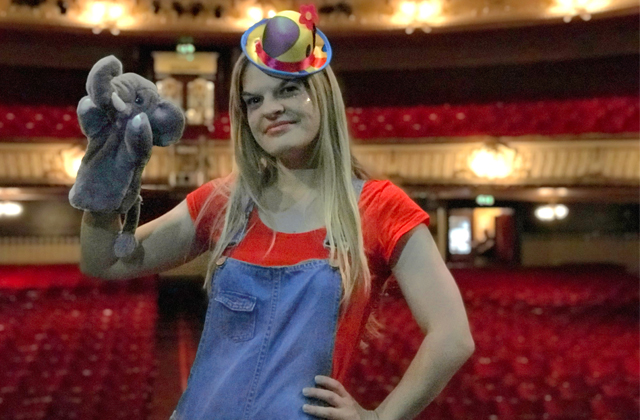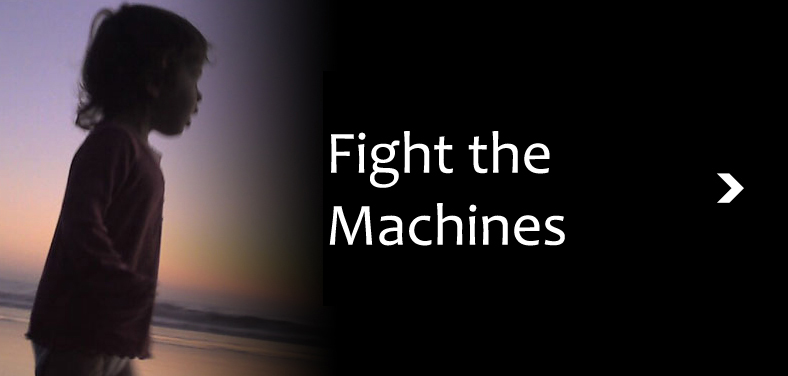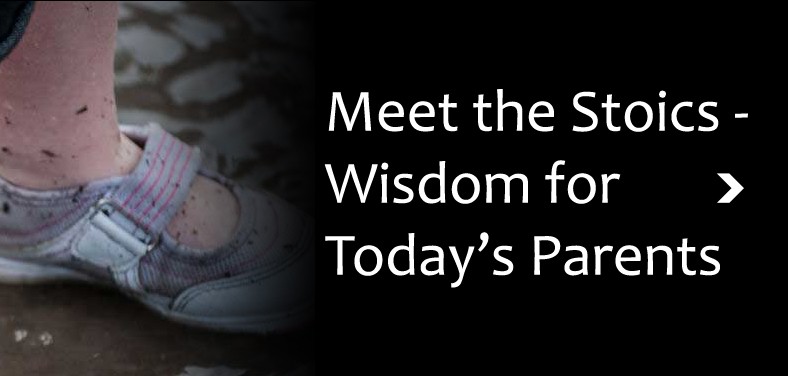Sometimes, I read parenting books so you don’t have to. “Untangled” is very much worthwhile – and yes, it is about teenage girls (I’ve got one). It’s a great book to consider when your girl gets to be about ten (it’s coming fast) … and it shows how what works with toddlers also works with teens.
The Book’s Subtitle: “guiding teenage girls through the seven transitions into adulthood” –
The author is a shrink and counselor at swanky girls school in Cleveland – she has lots of experience (and love) for teen girls in all stages. Her practice, and book, seem focused on affluent girls with engaged parents …. And the many natural challenges that come up in their 7th to 11th grade transformations.
She offers helpful concepts for understanding, and specific things to say. The big value for me is frameworks, or postures, for when conflicts come up: ways to focus the conversation, and adult efforts, away from our own personal agenda or emotional response in what can seem like petty, or irrational, or ill-behaved conflicts, and instead focus on shared attention towards what’s best for the girl’s development. IE: “This is not me trying to control you – this is me supporting you in getting experience in making your own good choices to take care of yourself.”
Key insight is “The drive for autonomy trumps all else” – you’ll work with it, or it will work against you.
There are 7 different but entangled “strands” of Girl to Woman:
- Parting with childhood
- Joining new tribes
- Managing emotion
- Contending with adult authority
- “planning for the future” (college n stuff)
- Entering the Romantic World
- Self-Care
Here we go (notes from book, in order – each of the “strands” above gets a chapter). I have put in quotes many of the specific “things you might want to say” that she offers.
Tips from Intro:
- Family Date Night? (put in that habit before they get too old to want it)
- Volunteer to pick up from events, to evesdrop
- “Honest Questions get Honest Answers” – don’t be lame when conversing – talk to the real issues being faced by the real person behind the veil.
Notes from her discussion on the “7 strands” (as listed above)
- Parting with Childhood means separating from parents.
It is fair to demand politeness (a key skill) not respect, as latter isn’t always felt, but former should always be demonstrated. “Please find a polite way to talk with me” etc.
Feel free to deny “nice” (extra) things you do if you are not being treated well: “People don’t do nice things for people who are mean to them” is a good truth to share.
Cultivate a tone of having, or showing, no agenda.
Swimming Pool Metaphor: kids frolic and play and test themselves and learn, but then go to hang on wall (parents) to rest or recover, then push off the wall to go back out into the pool. And what makes a good wall? Solid. Accepts the role of being “pushed off” – Be appreciative(notice effort) , be supportive when needed, and let her do it (out in the pool) on her own.
Separation/Development comes in waves: Advance; Retreat; Repeat. Steps fwd and backward between girl and woman – fine and natural. Swings can be every few minutes “I’m 23! I’m 8!” etc.
“Dressing Sexy” is not that – it’s really “dressing like a grown up” (in teen girl world, where grown ups are 18 year olds) “That outfit is going to attract sexual attention that nobody in this family is ready for.”
There are many ways to do the tough important work of parting with childhood. Remember, the pull toward autonomy will always trump all other concerns! This can explain what may look like self-sabotage – or other seeming random rejections of common sense… because the “Higher Stakes” of more autonomy may be in play. So helpful parental efforts or logic may be rejected: “Honey, I found the exact dress you are looking for” creates “I don’t want it any more” – or – “Yes, I am capable of organizing my school project – – But not if you are going to say I have to do it.”
- Joining New Tribes
“Liked” and “Popular” are different.
There is an efficient “Mean Strategy” to popularity: a girl who no one likes, but who is is at center of popularity because she has the tools and social power to threaten loss of Tribe Membership. (“Do what Brenda wants, or she’ll drive you out of the group.”) Tribe membership is super-important – it is a cause of stress, source of learning.
It’s helpful to see teens in conflict as people in tricky situations, rather than as “bad people.”
The goal is Assertive – a girl who stands up for herself, while respecting the rights and feelings of others.
Parents tend to “Do more of what’s not working” when things go wrong- which doesn’t work. (surprise!)
Kids will naturally be less cautious/safe/thought around their friends, But:
If you are stern and serious around their friends, you give them cover – “… I would love to join you guys in this risky behavior, but, well, you know my parents, and they are so strict on stuff like this…”
Adults need to, at the very least, respect the tribe loyalties – the friends come first, even before honesty with adults, etc.
“Kids are not addicted to social media – they are addicted to their friends” (and that’s how they communicate with them, esp if they are busy/programmed all day). Keep the right to look at social media at any time – and do. Don’t “sneak” – puts you in bad situation if you want to discuss something you see. Trust is vital, and can be fragile.
It is always better to start strong with tough standards, and gradually loosen them … hard to put the cat back in the bag once you’ve allowed certain social media, bedtime, curfew, etc behaviors …. Old school teacher saying: “Don’t smile until December.”
- Emotion and stuff
There is a great depth and breadth of emotion, and we are the dumping ground for that: they will keep it together all day, then dump it out on us “irrationally.” Much Externalization happens – the emotions that have been absorbed during the day – or that were created during the day but were not allowed to be expressed or to find a home …. Those emotions will pour out (or explode!) in safety of home, on unsuspecting parent. Butch up, mom and dad – it’s not about you.
“Heathy People get Sick Sometimes” is true with Mental Wellness. The trick – and the key experience – is to recover from episodes – “righting the ship.” When that doesn’t happen … then maybe call in a pro.
Welcome Emotion! No bad emotion – feelings are welcome – to be shared, and named. As Janet Lansbury’s “when you see emotion coming, roll out the red carpet.”
Name the Emotion(s). (important)
“Is there anything I can do that won’t make things worse?” She says this a great line, on many levels – a way to offer support while acknowledging kid’s pov without the harm that can come from you taking a position.
Learn her strategies for dealing with things – and support them.
Delay use of social media – to build social and emotional skills before deploying them via a screen. The longer, the better.
- Contending with adult authority
Not just parents – other “not getting it” oldsters.
Demand Civility! Politeness required. Even while they are being abused, parents must show that there are boundaries, and show that they care – even if it seems like they are being ignored.
The wish to connect with friends will (often? Usually? Almost always!) trump good judgement – the extent can vary, but it’s hard to underestimate it.
With behavior, focus on real risks, not risk of getting caught (which is what teens will prioritize). Don’t threat or judge: that will take focus to “don’t get caught” game. Your role/goal: connection with actual hazards, vs. avoiding detection. [Story of girl scheming to go to party with older guys she didn’t know – and focusing on hiding it from parents, rather than thinking “what could happen at that party – and do I really want to put myself in that position?”]
Be Authoritative. Warm, yet firm, with reasons behind rules.
The brain is “Updated” in teen years – recapitulating the developmental journey of early childhood, with limbic system first, working way up to higher functions.
Honor her complexity, while reminding her of yours. (let her experience some empathy – some “thou” – in dealing with parents)
Emotional Intelligence is grown when breaches are repaired! Each breach is a chance to grown in Emotional Intelligence – welcome and engage with those opportunities, throughout the family.
…. Feeling safe and secure a prerequisite for developmental “breach repair.” Invest in trust.
Know/Own/Share your “crazy spots,” or weakness – she knows them, well, and you can model self-awareness and empathize with those who have to deal with you.
There are no perfect people! No perfect parents, no perfect daughters, no perfect relationships!
“What do you make of …..” is a good way to ask about anything (in your curious, neutral tone)
Be fair, firm and friendly — A rule: No Shame, Explain! (so not “what kind of person are you?” but “Here is why we have this rule, and why I got so upset”)
Some system bucking, some rebellion, is healthy. But keep your leadership face on.
- Planning for the future
(In the author’s world, it’s about getting into a competitive college. Most of the examples from this section concern academic achievement – but they can be applied elsewhere.)
Remember, The drive for autonomy trumps everything else. That’s the lens for everything.
“Great Kids do Dumb Things.”
Internet: Natural impulses – sharing, getting attention/feedback, pleasing others – when combined with the internet create a “Permanent Record” – which they can’t conceive of.
Allow – encourage – total privacy for in-person encounters, and for using the phone – but do not allow total privacy in digital world – reserve right to look, and do.
Older Teens have the most “Juice” – every young teen wants to be like an 18 year old – they good models and info sources for protecting yourself in social media, etc – if you can find one.
Don’t get into a power struggle in a realm where the kid has all the power! (school work, eating, etc) …
“People make choices, and choices have consequences” – just a fact.
When correcting your child, be Helpful, not Hostile … mind your tone.
And remember, Autonomy trumps everything! – connect autonomy to other things to work in your favor (“when your grades are better, we will support risky socializing!”)
Maintain your neutrality in the face of her struggle. You are not a player in the game – more of an observer. Rules set by you are just facts in the game – boundaries for her work.
The problems are the child’s, not yours (procrastination, etc). Don’t let her switch fault (responsibility) to you. And definitely do not take it up yourself.
See, and celebrate, good – appropriate – aggression. (models – sports, justice Ginsberg, etc) There are times to kick ass.
With anxiety: 1) Normalize it. 2) Prep – to avoid – a good skill. Rehearse, in similar conditions.
Learn relaxation techniques: “diaphragmatic breathing, progressive relaxation, visualization”
Carol Dweck: Growth, vs. Fixed Mindset. Support, and celebrate Effort over Outcome
“You are doing great with _______, Now, it’s time to develop __________”
Every Teen needs a plan. Now matter how unrealistic – a plan is good. If no plan, there is a problem.
- The World of Romance
Key in this realm: focus on What She Wants – not just the risks. (That focus fixes much of it)
Ask questions not to get answers, but to stimulate thinking.
Goal is supporting development of Inner Compass
- Support the idea (inner compass)
- At times, connect internal compass-type feelings to what she wants
- Make sure she can express what she doesn’t want
Example: “When that happened, did your friend enjoy that? Do you think you’d enjoy that?”
“Anyone who deserves to be with you will respect your wishes.”
“Be Nice” with boys – they freaked out, nervous, too – empathize for good connections to good ones (when time comes). Polite, again. As with friends (Goal of GARL with younger kids – Generous Appreciative Respectful Listener)
Bottom line: Know – and follow – your inner compass
Sexual activity can drive social status both ways: active sexually both gives and takes away in tribe. So … it’s complicated.
“What sacrifices should, and shouldn’t, be make in the name of relationships?”
One thing parent can say when teen discusses her own, or friends, love life:
“Wow – it’s complicated. I really don’t know what to say. What do you think?”
(on sexual orientation, etc – ask how they want to be called – no rush, and they are in charge)
No Older Guys! (good things don’t happen) – not a hard rule, but basically 1 year older, max.
General rule to avoid “bad” guy situations: Develop alternate sources of self-worth.
7 Self-Care
No Lecturing! (Ben?) Lectures turn them against (see “Autonomy …” elsewhere)
No accusatory questions!
Girls will lower “veil of obedience” – will hide behind mumbled fake compliance without engaging besides saying “can I go now” …. So better to avoid a posture that will bring that retreat/defense – as it closes off communication.
With food – watch for slippery slope – get professional help. Watch out for labeling things as “healthy” or “good for you” or “fattening” with food, instead, use “Anytime Foods” (apples) and “Sometime Foods” (French fries).
Talk about food ONLY in terms of growing your ability to take care of yourself. (see – it’s another path to holy grail of autonomy).
The child’s size or weight or appearance are totally neutral to the parent – taking care of yourself is #1 – the only thing that matters.. Don’t judge – pos or neg. Support self care.
With drinking, share reasoning “You are learning to take care of yourself – it can take a while to figure these things out.”
Heavy, frequent pot smoking in teen years is bad – they can wait.
With drinking/drugs – 1) let your kid use you as social cover – an excuse when they are uncomfortable, and 2) if there is an issue or problem, ask “Are you worried about it?”
The kid is not the bad guy. You are not the bad guy. The drugs are the bad guy.
And, finally …. Enjoy! (Sound Familiar?)




Add comment